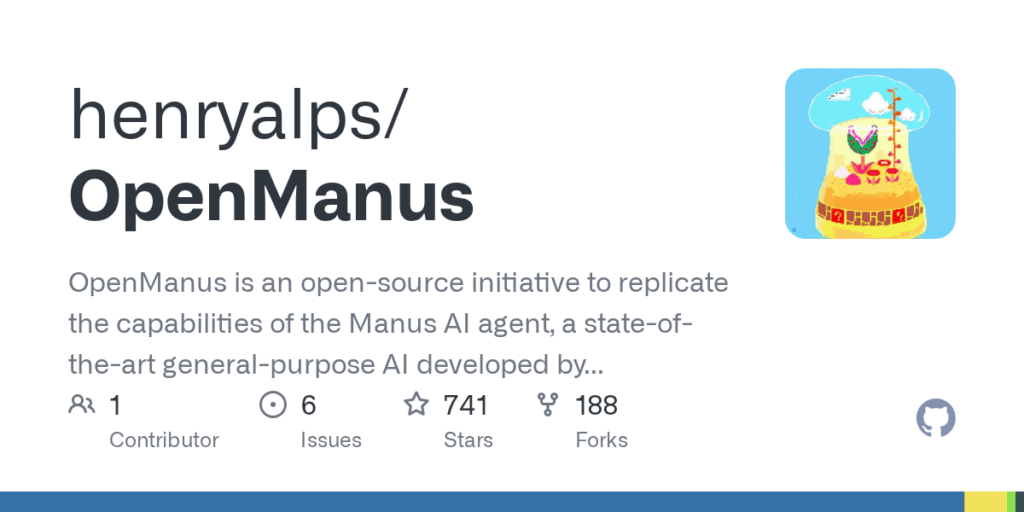OpenManus
Basic Information
OpenManus is an open-source project that aims to reproduce and make accessible the capabilities of the Manus AI agent by providing a modular, containerized multi-agent framework. It is intended for developers and researchers who want to build, deploy, and experiment with autonomous agents that can collaborate to perform complex tasks. The repository bundles backend agent logic in Python, a Next.js frontend, a FastAPI server, CLI tooling and Docker Compose orchestration to run a reproducible environment. The stated use cases include personalized travel planning, data and stock analysis, and content generation. The project emphasizes extensibility, allowing contributors to add new agents, tools, LLM integrations and workflows while mirroring Manus-style autonomous task execution and community-driven development.








